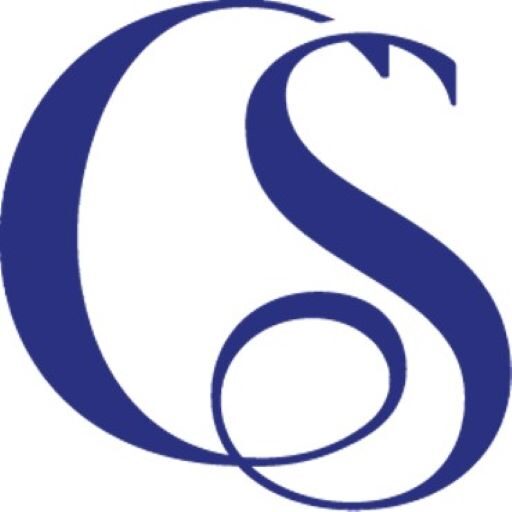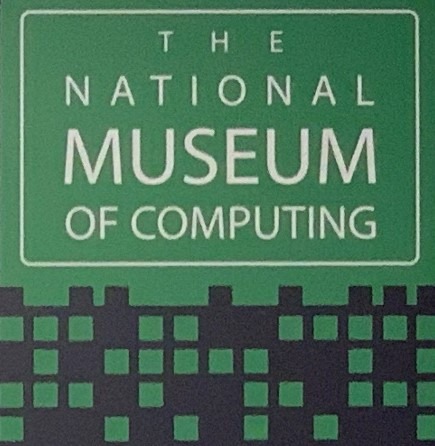
It was field trip time for our Master level students of the Multi Platforms Communication Module (2023-2024)! Together with Asher Rospigliosi Pallavicini, we visited the National Computing Museum at Bletchley Park. Many thanks go to Dr. Richard Berry (Head of the School of Management and Marketing) who agreed to fund the trip and Josh Scott from the Wellbeing Support Team who assisted me with all the administrative tasks! You made this enriching experience possible, and it would not have happened without you 😊! Many thanks also go to Aisha Dhama who assisted and supported me with various tasks during the trip. I am very grateful for your help, and it made a very positive impact on my experience and contributs to Positive Academia, #PositiveAcademia 😊
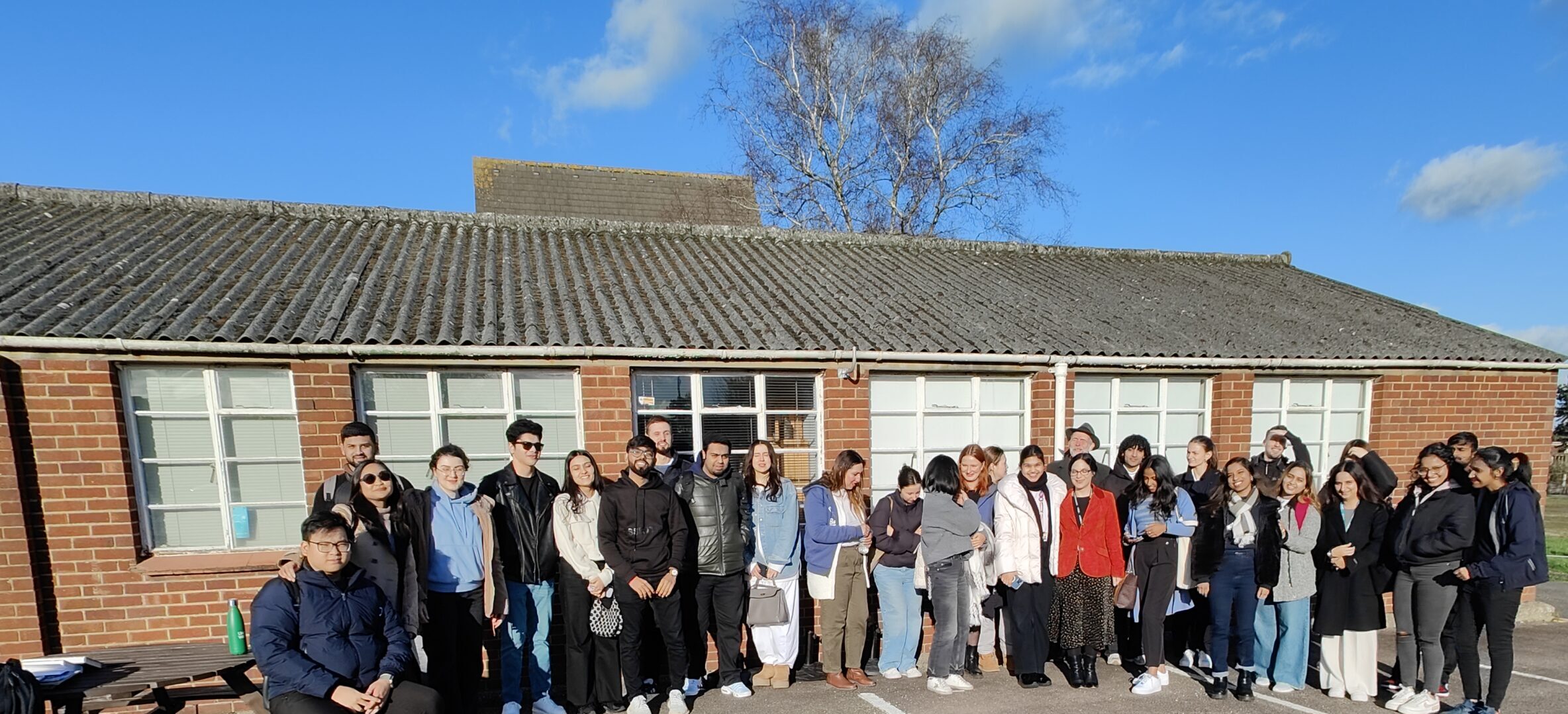
Our Multi Platforms Communication module requires students to engage with and develop integrated marketing communications strategies. I strongly believe that we become better practitioners if we understand the historicity of why and how we exist and act in the contemporary world. This is especially true for the use of (digital) technology because it gives us a clear picture of how the technology worked in the past and how it evolved. Such understanding can help us to observe and understand how current people and societies interact with technology and why they behave in certain ways.

Knowledge of historicity also supports our understanding of current issues and enables us to question why aspects and circumstances exist. It also informs us about how it shaped our offline and online worlds within which the interactions between consumers and consumers, consumers, and businesses, as well as business and business take place. Lastly, if we truly want to understand why and how our (online and offline) business environment developed we need to understand the factors that influenced the historic timeline. This enables us to identify and explore the reasons behind changes and supports the understanding of the components of the environment regardless of continuing changes. Thus, we become better practitioners, professionals and efficient problem solvers who can develop effective and logical solutions supported by knowledge of past circumstances and similar problems.
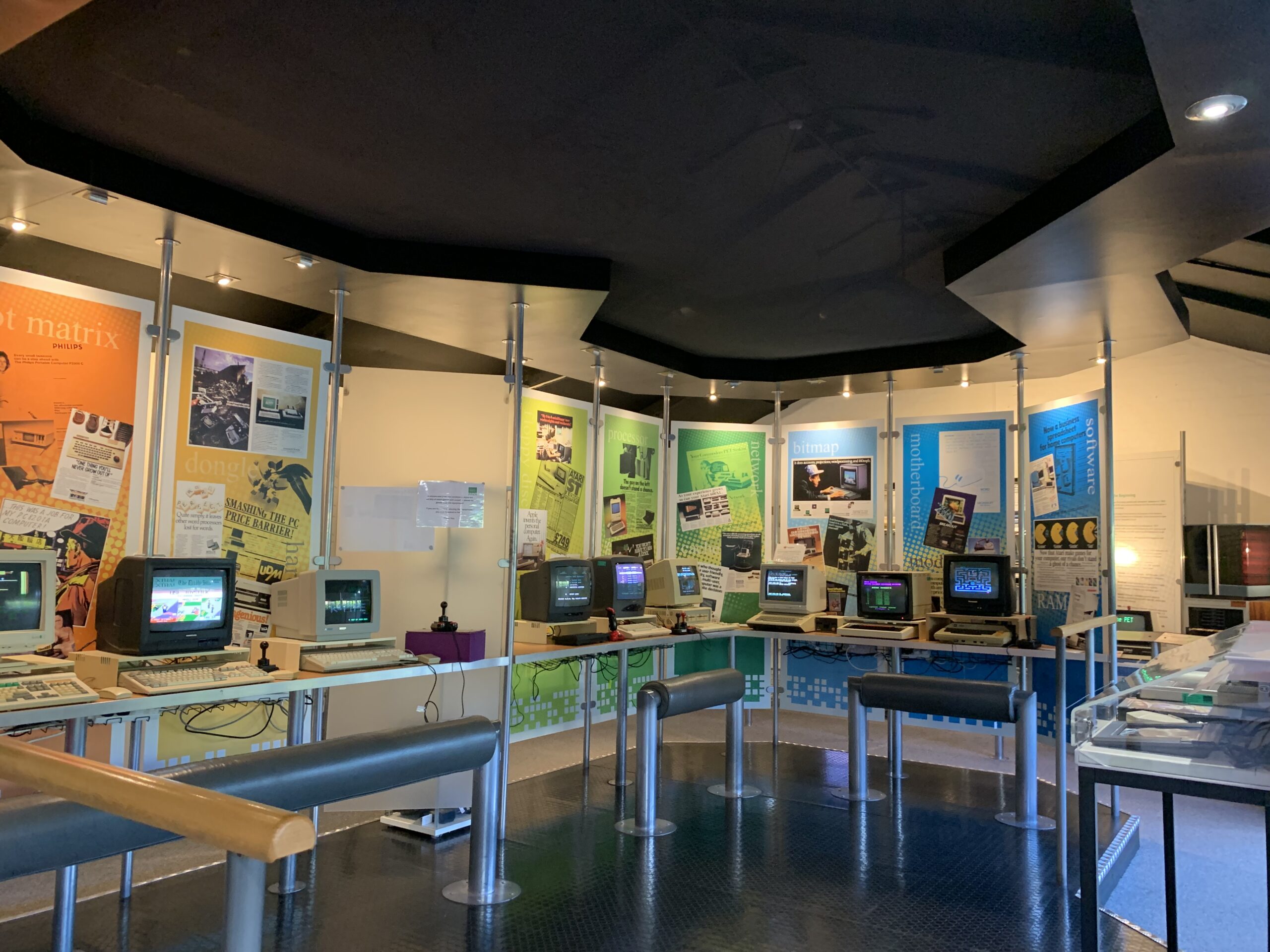
Arrival at Bletchley Park
We enjoyed a comfortable bus trip from our Marylebone Campus to Milton Keynes. The weather was sunny, and the journey was much quicker than expected!
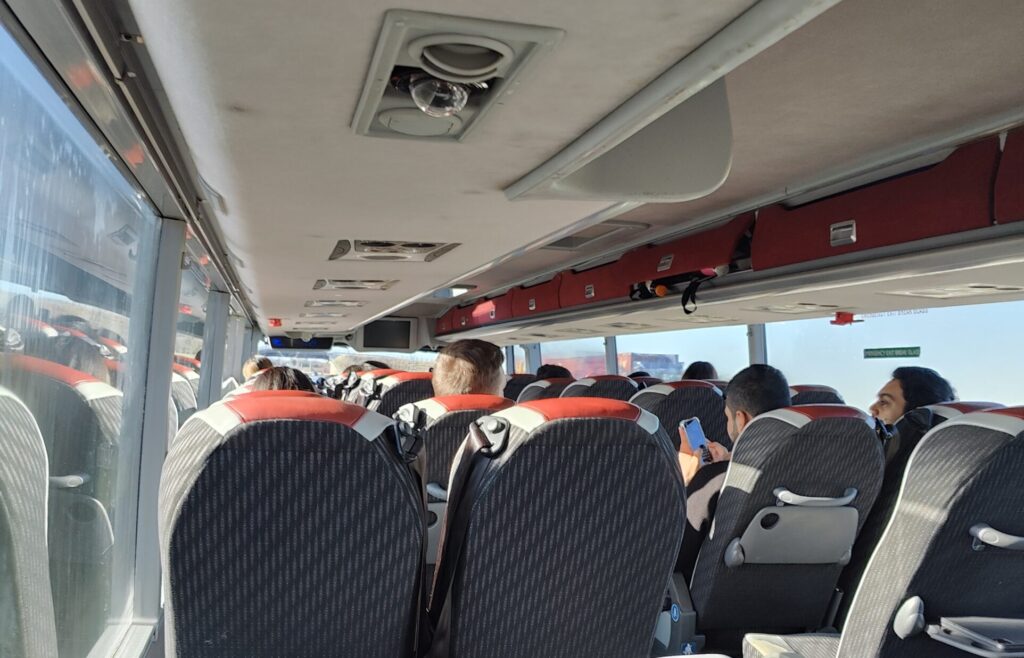
The Bletchley Park Team expected us, and we had the privilege to enjoy their four-hour Gold Package tour including workshops and presentations. The map of the buildings is crucial as you can get easily lost between all the old and new technology 😊.

Welcome to Bletchley Park: Quiz Time!
Our students were introduced to the National Museum of Computing and straight away participated in a hybrid quiz competition focused on vintage technology 😊. The students had to guess various dates, and storage sizes of first hard disks, floppy disks, and historical data of other technology.
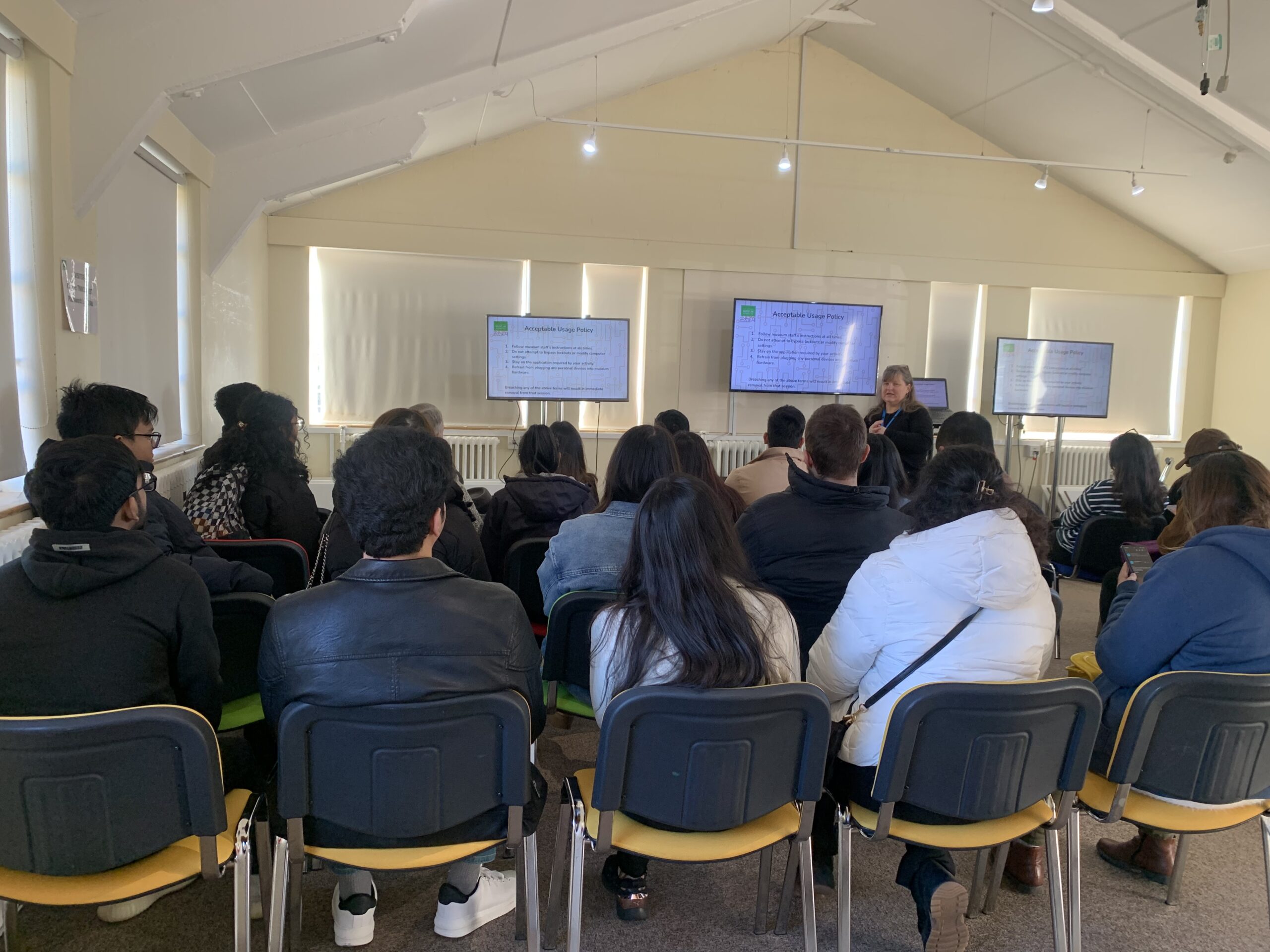
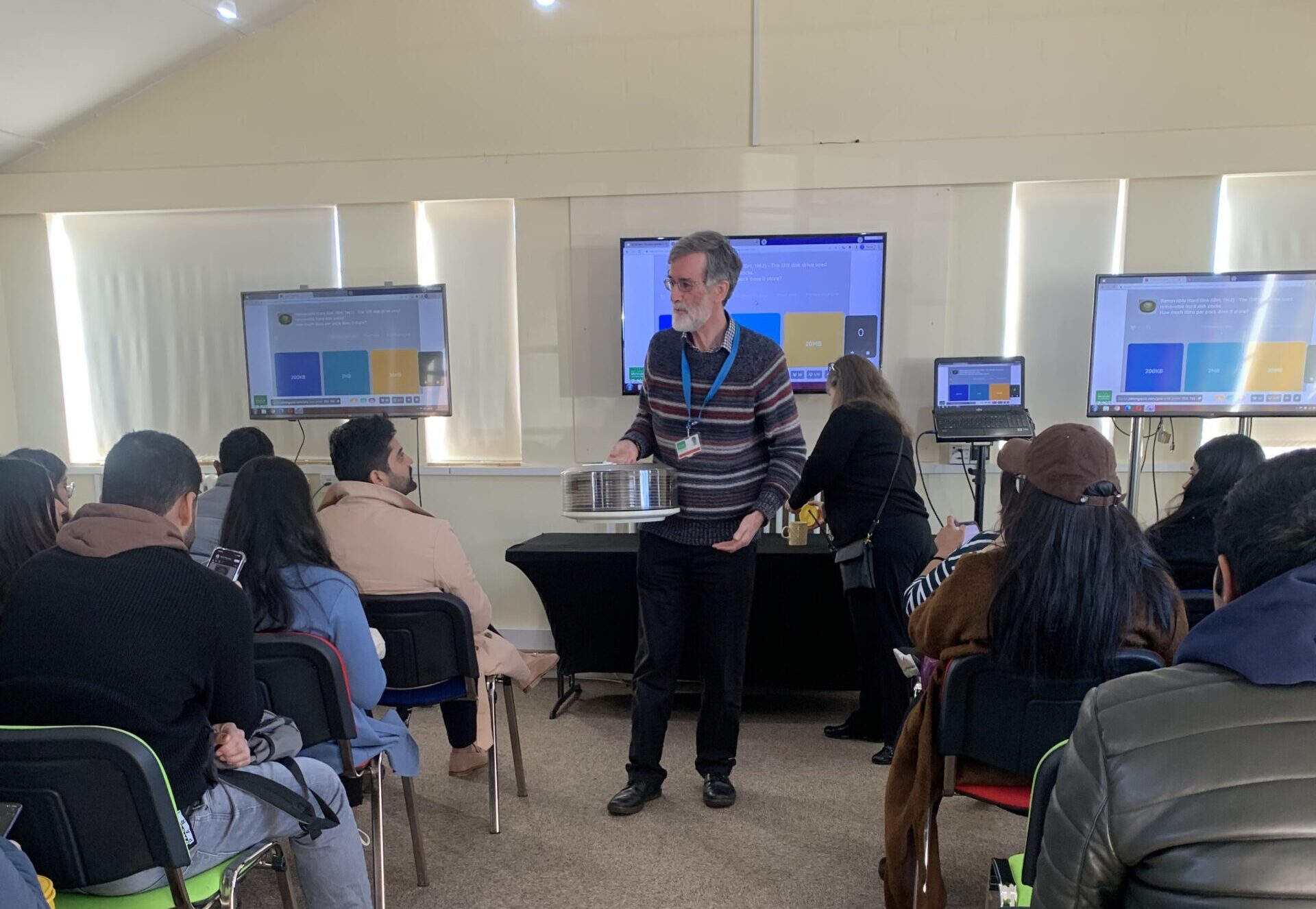
The students enjoyed the quiz, and it was a great introduction to the importance of the historical development of technology. After this, we divided our 40 students into five groups – thanks to Aisha who managed the admin part of this! Following this, we visited three different workshops (Micro Bit Hash Track, History of Code Cracking at Bletchley Park and Women in Computing!
Session 1: Hash-Track Micro-Bit Challenge
The students were introduced to the use of Micro-it and had to complete the following challenge:
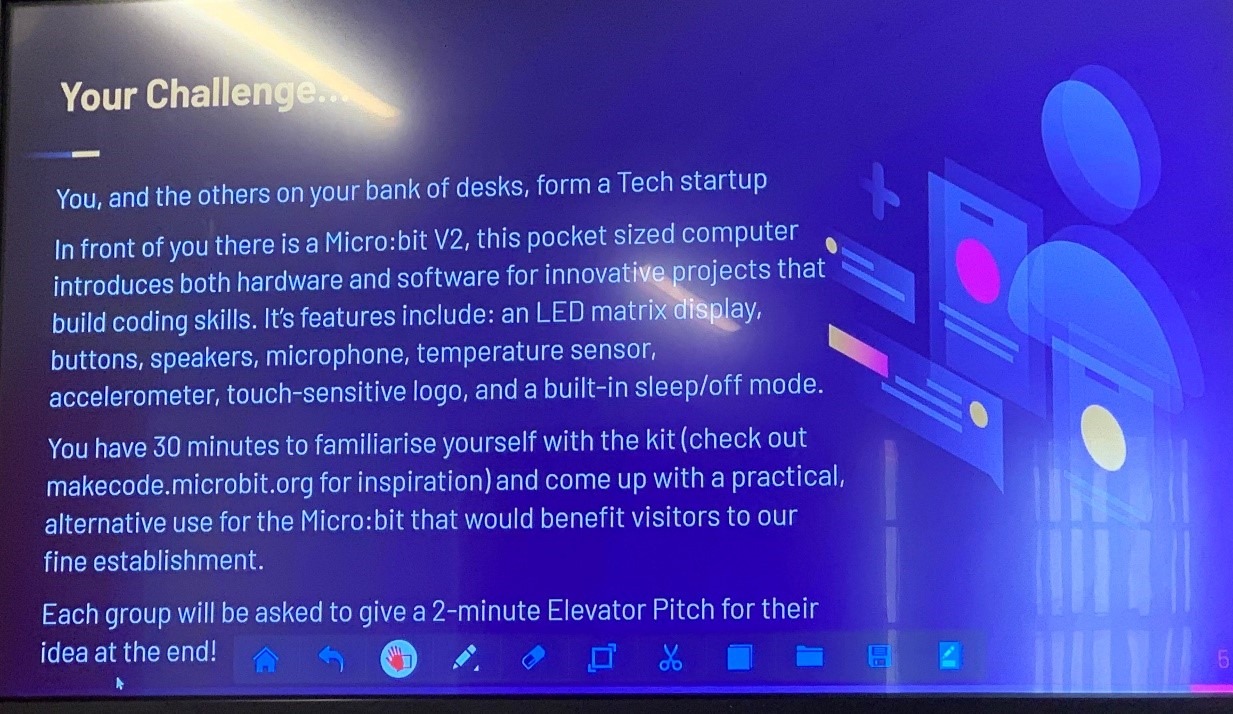
They were enthusiastic to complete the tutorials and for many of them, Micro Bit was something new! Thus, this activity introduced them to basic coding skills and stimulated their ideas for their campaign development in our module.
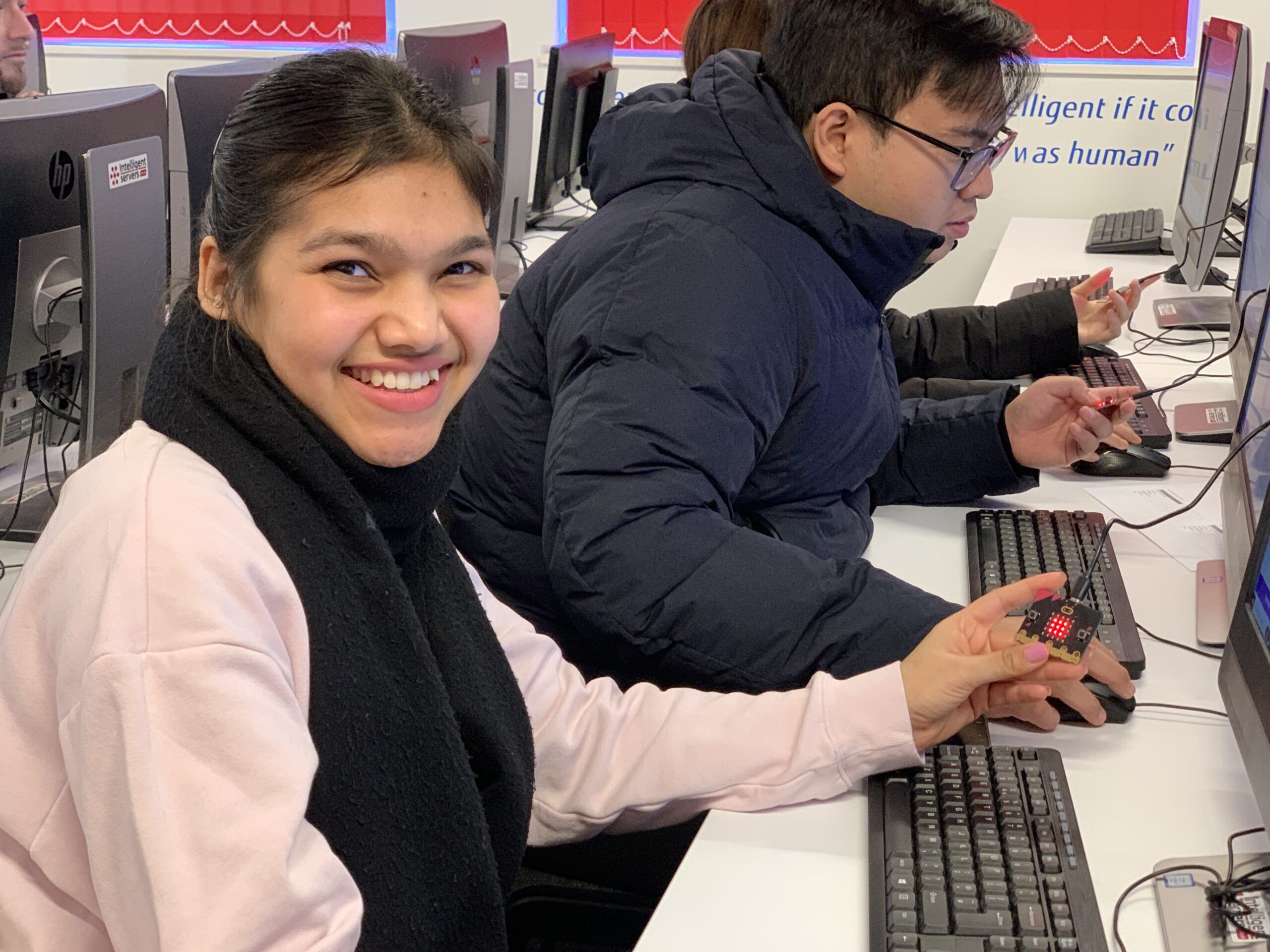
The students developed various ideas on how to support Bletchley Park’s business concept. In their groups, they had to pitch their idea during the micro session. We had ideas ranging from navigation systems to gamification of the experience as well as the introduction of new coding courses for school kids in partnership with Roblocks.
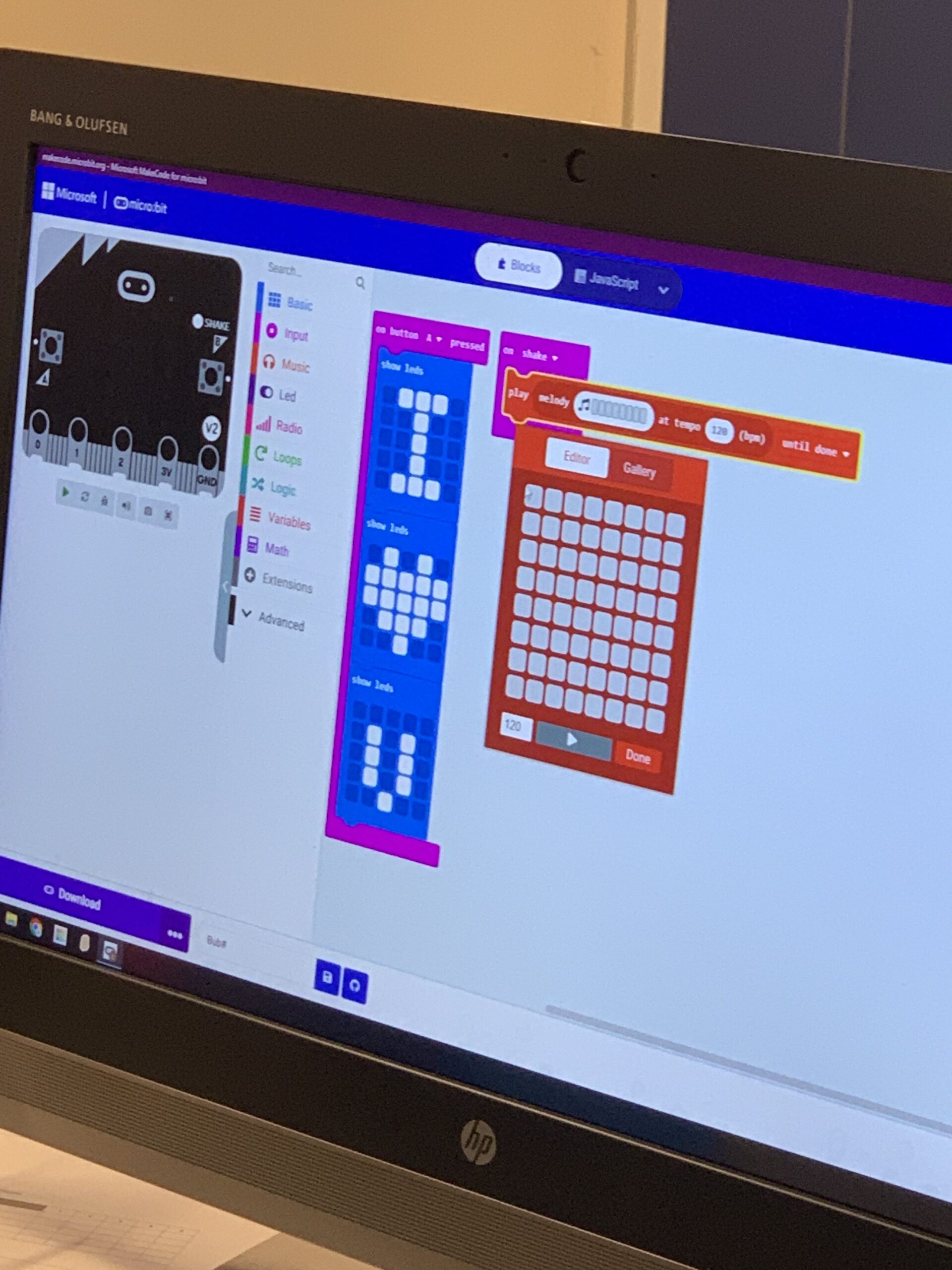
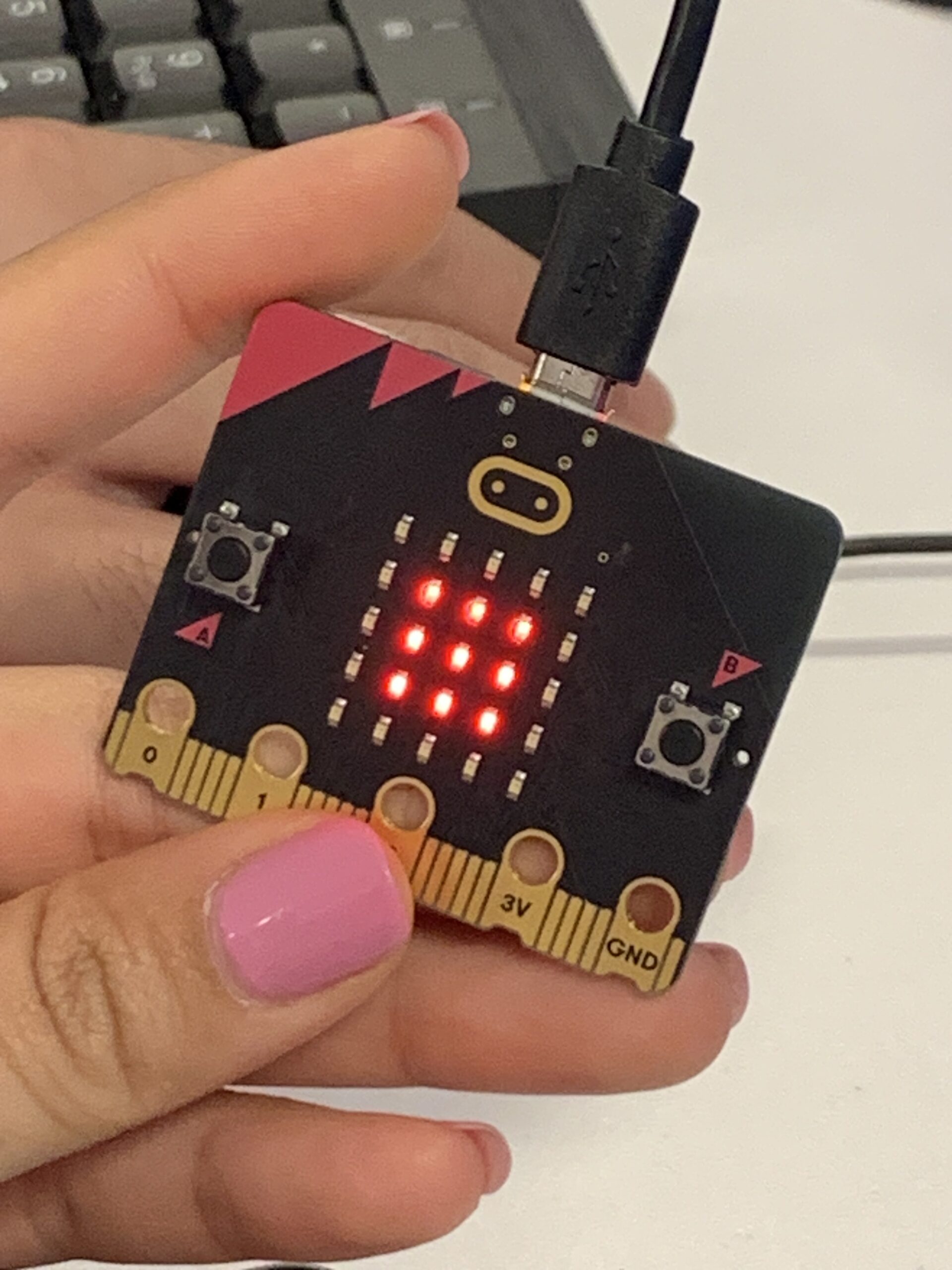
Overall, this session was very successful and enabled the students to take new perspectives on their approaches to marketing strategies and advertising as well as they learned how essential coding skills are and I hope to see some of the students develop such competencies and knowledge further!
Session 2: History of Code Breaking at Bletchley Park
During the second session, we were introduced to the fascinating code-breaking machines developed and used at Bletchley Park during the war times! It was complex and very interesting. We started at the Bombe followed by Enigma, Collossus, Lorenz and ended at the still today oldest functional computer!

The students enjoyed the interaction with the highly competent Bletchley Park Team. We had a lot of opportunities to learn from their experiences and expertise and it was fascinating to listen to their stories and the history of Bletchley Park.
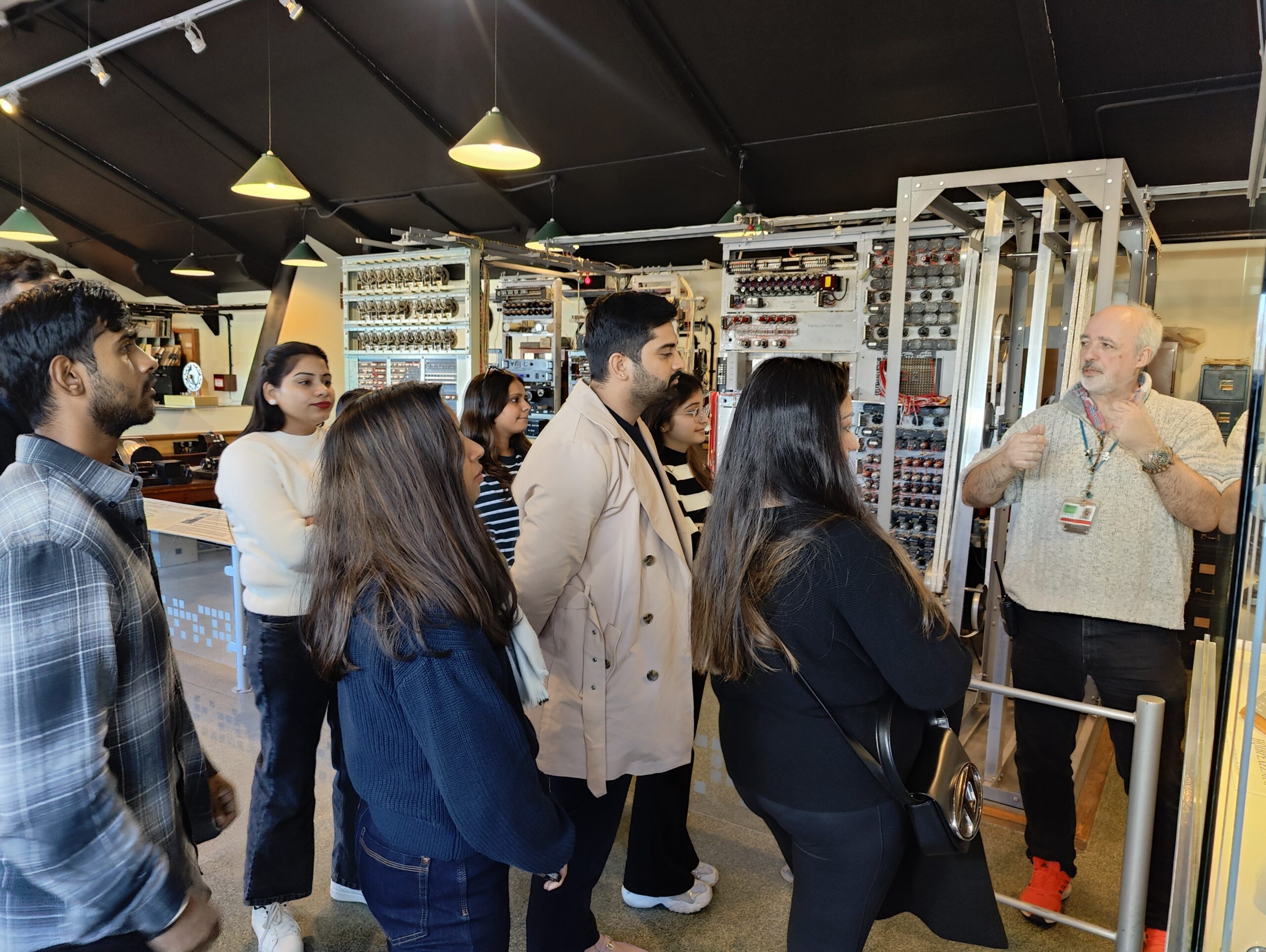
We had the privilege to witness the oldest still-functioning computer in the world! We had a demonstration of how the first square calculation was conducted. We also were introduced (via photograph) to the mathematics students who used this computer. It was lovely to see how they aged over time and added a societal touch to this experience. It made the students including the lecturers think and reflect on how things were calculated in the past and how quickly things changed, became easier and much faster and the one thing that stays the same is that we are all aging and growing older, but we adapt and evolve together with technology.
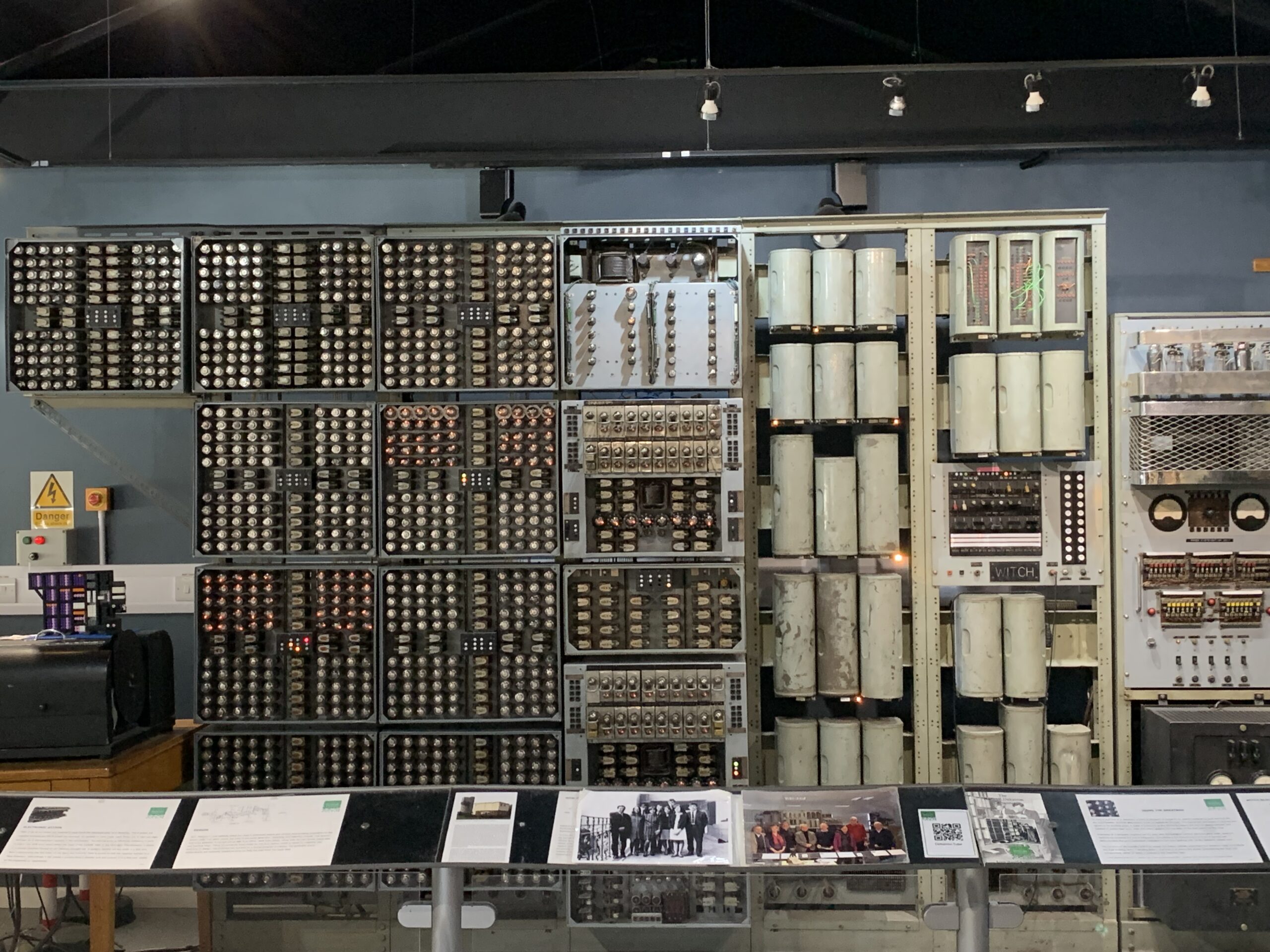
Lastly, we all had the opportunity to enjoy access to vintage games and it was really fun to compete with the students. I loved to recognize the very first Nintendo game console that I bought more than 20 years ago and can’t believe to found it in the museum! Love Live the Love for Vintage!
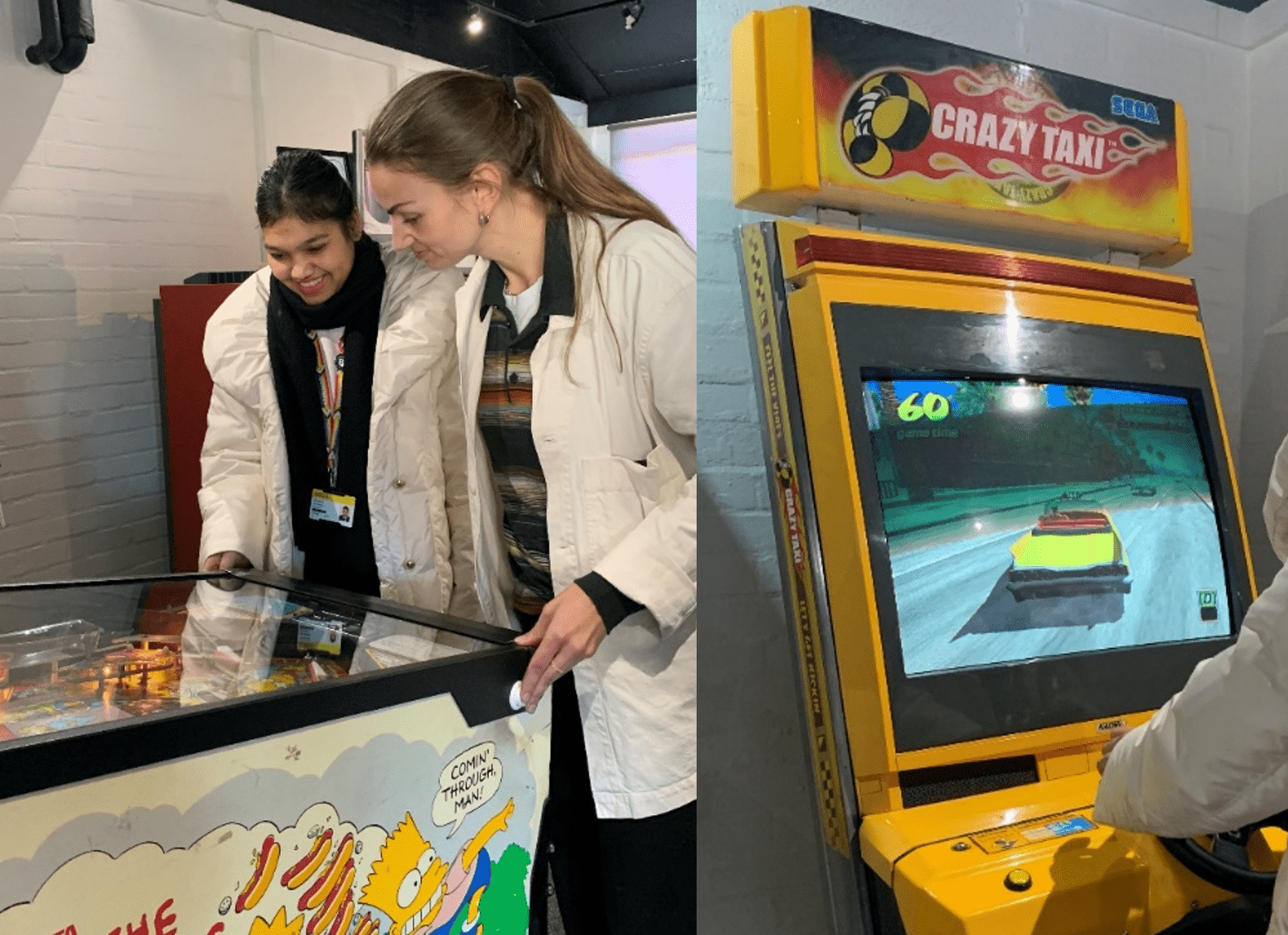
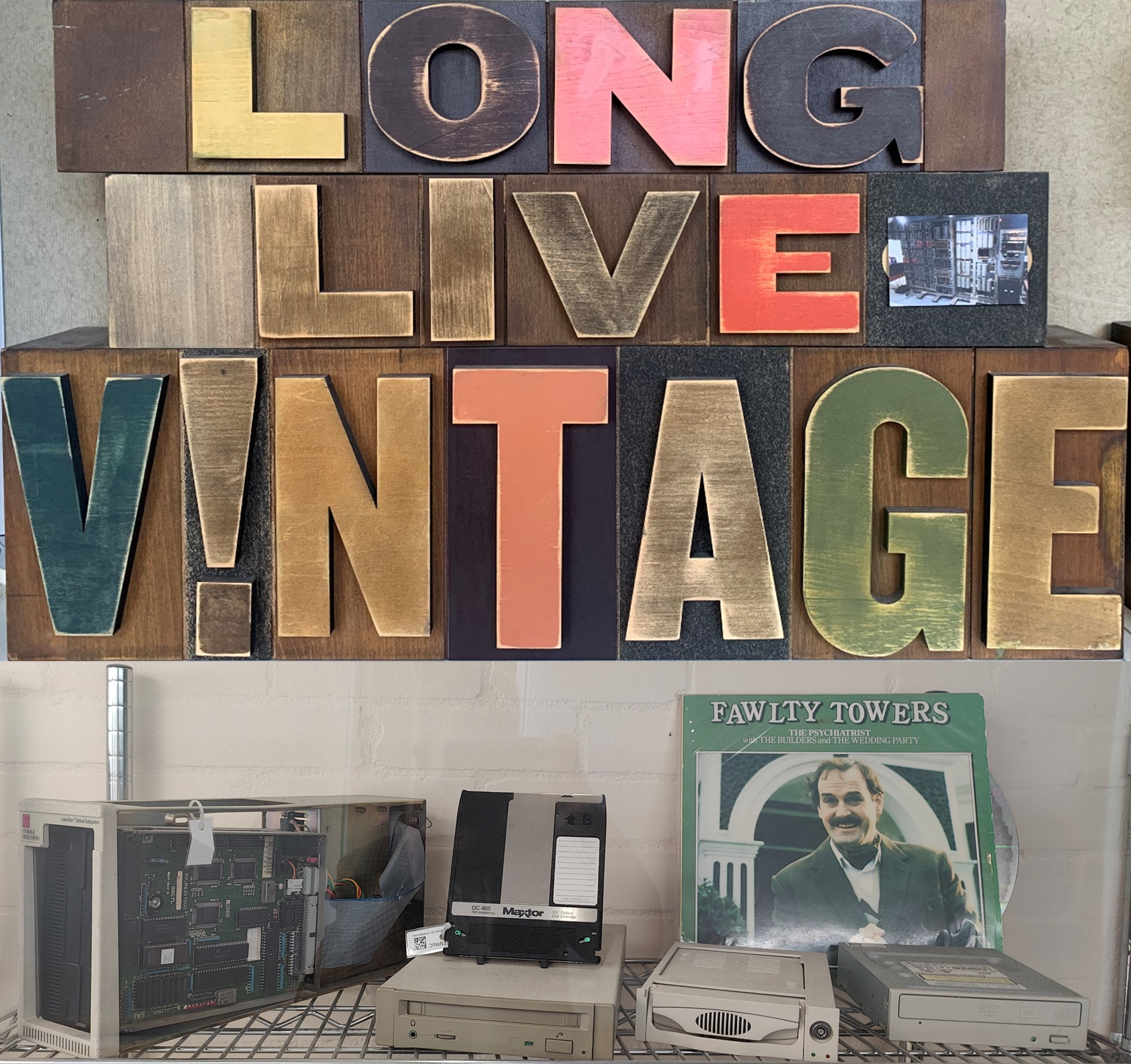
Session 3: We need more Women in Computing!
During the last session, we were introduced to the heritage of women in computing. It was great to understand how the women actively participated in codebreaking at Bletchley Park and the following decline of women’s involvement in work outside the home due to societal shifts after wartime.
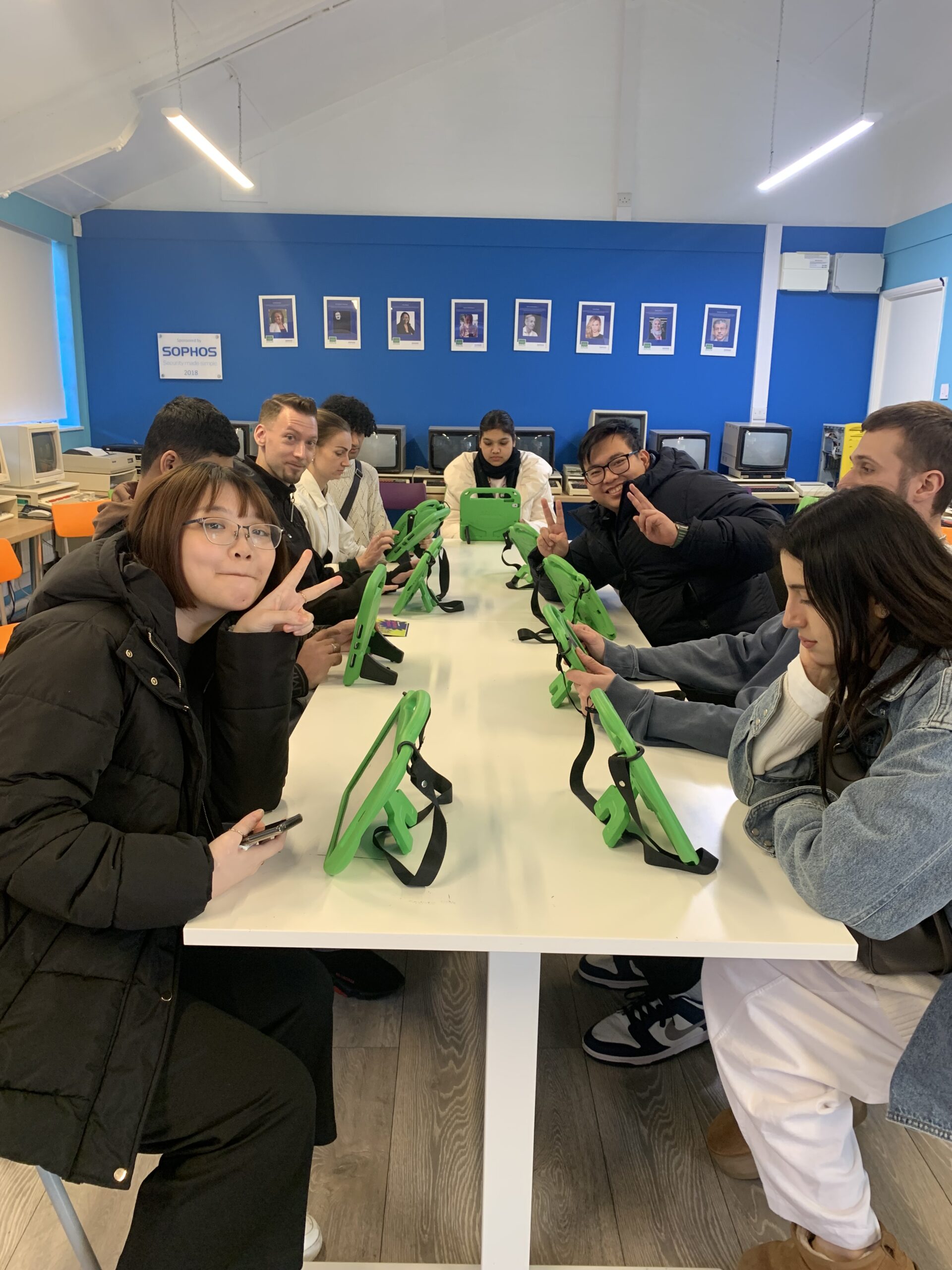
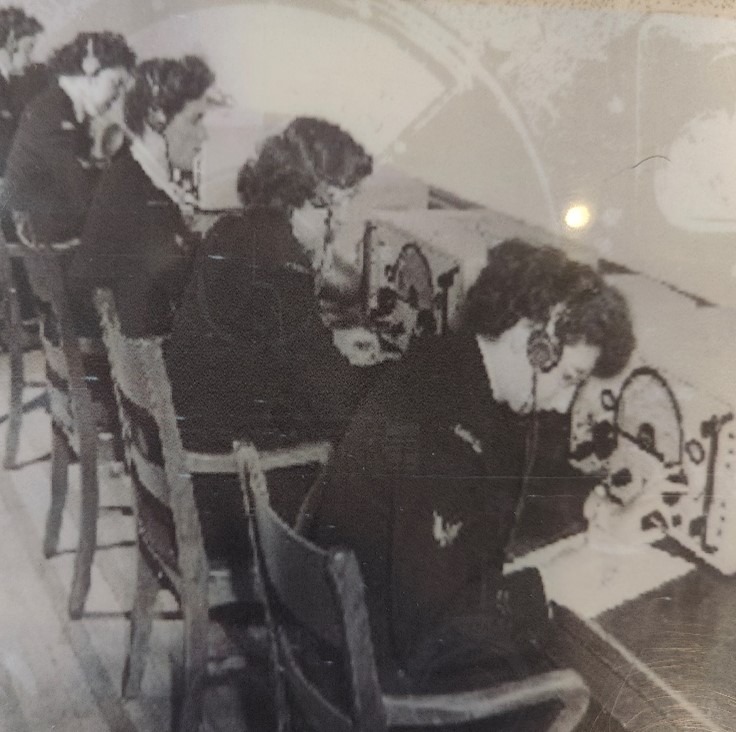
The students actively discussed the important topic of women in science and participated in digital Quizzes on the iPads. Many students found the topic very important and started to reflect on their situation and the changes over time. We all agreed on the importance of gender equality and ‘we need more women in STEM’!
Bye bye Bletchley Park!
We all had so much fun and enjoyed the Pizza during lunchtime and the warm sun outside. The students had a great time socialising and there were many nice collectables in the museum shop 😊
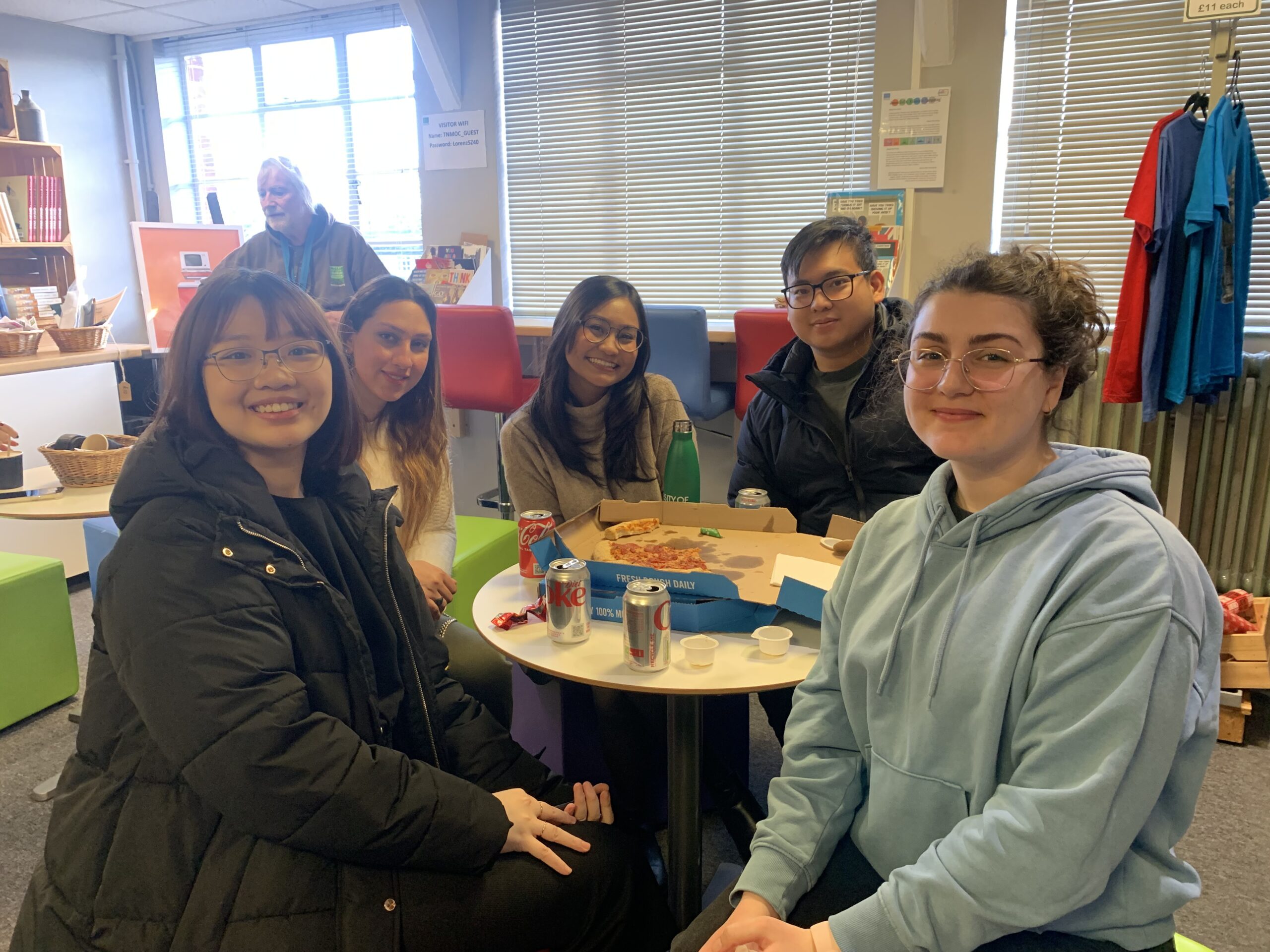
Lastly, we received great feedback from many students about this trip. It feels wonderful to know that this activity created positive impact for our students, developed their understanding of their field and enriched their professional competencies.
A lovely testimony of one of my students Gurshin Kaur Jora Singh Sidhu
Dear Christa,
I hope this email finds you well. I wanted to take a moment to express my sincere gratitude for organizing the recent field trip to the National Museum of Computing. It was an incredibly enriching experience, and I am truly grateful for the opportunity to participate.
The visit to the museum provided me with a unique insight into the history and evolution of computing technology. From the pioneering machines of the past to the cutting-edge innovations of today, I learned so much about the incredible journey of computing over the years. The exhibits were not only informative but also captivating, and I found myself thoroughly engaged throughout the visit.
Thank you once again for organizing such a memorable and educational trip. Your efforts in providing hands-on learning experiences for your students are truly appreciated, and I feel fortunate to have been a part of it.
Looking forward to continuing our learning journey in the upcoming classes.
Warm regards,
Gurshin
This is when teaching in academia becomes fun and important as it enables us to create that impact for the younger generation who will contribute with their knowledge to our societies. I am looking forward to integrating more ideas in my upcoming teaching and hope to leave many of my students with memories shared by Gurshin.
